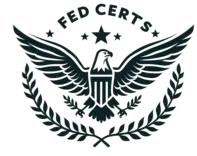Federal Grant Writing 101:
Understanding the Language of Proposals
Federal grants can be a powerful resource for non-profit organizations and individuals seeking funding for various projects and initiatives across fields such as education, healthcare, research, and community development.
However, the process of applying for government grants is often perceived as complex, primarily due to the terminology and jargon involved. This complexity can deter many potential applicants who may otherwise benefit from funding opportunities.
Why Master Terminology for Writing Grants
Grasping this language is key to writing successful proposals and getting the funding you need to make your project ideas happen. By getting to know the common terms and acronyms used in federal grant proposals, you can really boost your chances of success. This guide is here to help newcomers understand the key terms, confidently handle the application process, and, in the end, secure the funding needed to reach their goals.
Key Terms Used in Writing Federal Proposals
The terminology used can be diverse and complex, reflecting the variety of roles and processes involved in the grant’s lifecycle. For newcomers, decoding this language is the first step toward writing a proposal. Some common terms include:
- Applicant: The individual or organization that is submitting a grant proposal. This term is foundational, as the entire process revolves around the applicant’s qualifications and the proposal’s merit.
- Award: This refers to the financial assistance provided to support a public purpose. An award can take various forms, including government subsidies, cooperative agreements, or other assistance.
- Budget: An important part of any subsidy proposal, the budget outlines the financial plan for the project. It details the costs involved and often includes both federal and non-federal shares.
- Cooperative Agreement: Similar to a grant, but with significant federal involvement in the project. This agreement outlines the roles and responsibilities of both the federal agency and the recipient.
- Discretionary Grant: Unlike formula grants where recipients are predetermined, discretionary funding allows the awarding agency to select recipients based on the merits of their proposals.
Common Acronyms and Their Meanings
Federal grant writing is full of acronyms that can easily confuse newcomers. Here’s a list of some of the most common ones:
- CFDA (Catalog of Federal Domestic Assistance): This is a directory of federal programs available to various entities, providing essential details about each program.
- NOFA (Notice of Funding Availability): This announcement indicates the availability of federal funds for specific programs, providing guidelines for application. Visit federalregister.gov to learn more.
- RFP (Request for Proposal): A formal invitation from a grantmaker to submit proposals addressing specific needs or projects.
- LOI (Letter of Intent): A preliminary step in the grant application process, indicating the organization’s intent to submit a full proposal.
What is the Grant Lifecycle
This lifecycle encompasses a series of stages, each playing an essential role in the successful acquisition and management of grant funding:
- Pre-Application: This initial stage involves the identification of potential funding sources and a thorough understanding of eligibility requirements. It’s important to conduct research to find funding opportunities that align well with your project goals and ensure that you meet all the necessary criteria for applying.
- Application: During this stage, applicants prepare and submit their proposals, which must include comprehensive project plans, necessary documentation, and detailed budget information. It’s important to craft a compelling narrative that clearly demonstrates the project’s value and addresses the grantor’s priorities.
- Award: If the application is successful, this stage entails receiving a notification and carefully reviewing the terms and conditions attached to the award. It’s vital to understand all legal and financial obligations before accepting the grant to ensure compliance.
- Implementation: This phase involves executing the project as per the outlined proposal. It requires diligent management to adhere to the scope, objectives, and timeline while maintaining compliance with all grant terms. Regular progress monitoring and reporting are often necessary to demonstrate that the project is on track.
- Closeout: Upon project completion, the closeout stage involves fulfilling all final reporting and financial obligations to the awarding agency. This includes submitting performance reports, outcomes, and a final financial statement, ensuring all conditions have been satisfactorily met.
Each stage of the grant lifecycle demands careful attention to detail and adherence to specific guidelines, highlighting the importance of having a solid grasp of government terminology and administrative processes. This approach not only increases the chances of securing funding but also ensures efficient project execution and compliance.
5 Tips for Writing Federal Grants
While writing federal grants may be a challenge for many, understanding and effectively using terminology can improve your chances for success. The following tips from our federal grant consultants may help you navigate the process:
- Study Glossaries: Start by utilizing resources such as online glossaries and federal websites to familiarize yourself with the common terms and acronyms frequently used in applications. Understanding this language will make it easier to comprehend guidelines and requirements.
- Take Courses: Consider enrolling in online courses or workshops specifically focused on writing. These educational opportunities provide deeper insights, practical skills, and the latest best practices in the field, equipping you to craft compelling grant proposals.
- Engage with Peers: Join forums or networks where grant writers gather to exchange ideas and experiences. Engaging with peers provides a supportive community to learn from others’ successes and challenges, and to stay updated on current trends.
- Utilize Tools: Leverage software and online tools designed to streamline the grant writing process. These tools can assist with organizing documents, tracking deadlines, and ensuring that all components of your proposal are complete and polished.
- Hire a Professional: For complex or large-scale proposals, consider hiring an experienced federal grant writer. A professional can provide invaluable expertise, ensuring that your application is well-crafted and stands out in a competitive field.
By implementing these strategies, you’ll enhance your writing skills and increase the likelihood of securing federal funding for your projects.
Key Takeaways

Getting the hang of federal grant writing is key for putting together winning proposals and securing crucial funding for your projects and initiatives. Grasping key terms, acronyms, and the lifecycle process helps newcomers tackle the often complex and detailed writing process with more confidence and effectiveness.
A well-crafted proposal can showcase the unique aspects and potential impact of your project, making it more attractive to funders. If you hit any bumps along the way, like figuring out tough eligibility requirements or sticking to strict submission rules, getting help from experienced proposal writers and consultants can really boost your chances of success. They can offer valuable insights and strategies to up your odds, ensuring your project gets the financial backing it needs to make a real difference.
Boost Your Success with Expert Support & Government Contract Consulting
Looking for expert help with grant and proposal writing services? Contact the FedCerts. Our seasoned grant and federal proposal writers offer tailored support and strategic advice to enhance your proposals, increasing your chances of getting government funding. Whether you’re learning how to write grants or refining your skills, our pros are here to assist every step of the way.
In addition to our grant writing service, we provide a range of government contract consulting services, including SAM registration and renewal, DSBS profile optimization, capability statements, and assistance with applying for federal contractor programs and certifications. Reach out today to discover how we can support your grant applications and government contracting needs.
Understanding the Language of Proposals



